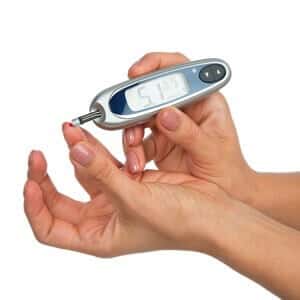
Diabetes is reaching epidemic levels, not only in the US but around the world. According to the Centers for Disease Control and Prevention (CDC), approximately 30 million Americans have diabetes. By far the greatest proportion have type 2 diabetes, which can sometimes be controlled with diet, exercise and oral medications. To keep the disease from wreaking havoc on the body, however, patients need good diabetes care. What does that look like? Most of all, it does NOT mean taking supplements without monitoring blood sugar, as one reader discovered:
Taking Supplements Without Monitoring Blood Sugar Led to Disaster:
Q. For years I had no insurance, so I took herbs to try to control my diabetes. I took cinnamon, bitter melon, alpha-lipoic acid, ginger and other supplements.
About a year and a half ago, I was hospitalized for an unrelated illness. When they checked my HbA1C, it was 11.8. All those spices and supplements had not controlled my blood sugar at all!
I knew metformin was on Walmart’s $4 list, but I couldn’t afford the doctor visits and blood work. Now I have gastroparesis and diabetic retinopathy. Tell your readers not to use herbs for diabetes.
Why Diabetes Care Is Critical:
A. Your story reinforces the importance of regular blood glucose measurements and diabetes care for people with diabetes. The fact that you could not afford to see a doctor during that time has made your life much more difficult now. Relying on herbs, dietary supplements or even prescription drugs without close medical monitoring is a recipe for disaster.
With appropriate care, the complications you must now manage might have been avoided. This is not your fault, of course, but rather results from a health care system that denies diabetes care to the uninsured. Gastroparesis (delayed stomach emptying) can lead to nausea, vomiting, bloating and stomach pain, while diabetic retinopathy can impair vision.
Learn More:
We are sending you our Guide to Managing Diabetes with 10 key steps for keeping blood sugar in check with and without drugs. People who monitor their blood sugar regularly and consult with their doctors may sometimes be able to use exercise and a low-carb diet to maintain blood sugar control. Those following such a regimen might also find certain supplements useful, but only under medical supervision.

